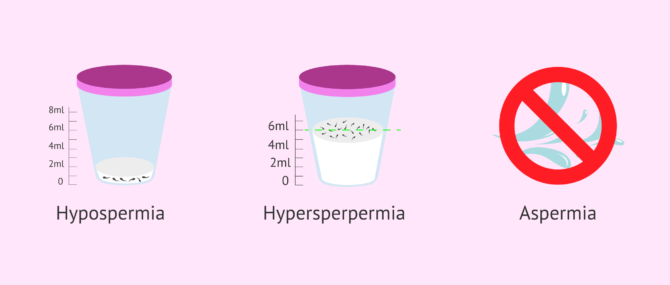The first thing to consider is what is defined as a normal semen volume. The World Health Organisation (WHO) defines it as between 1.5 and 6 millilitres.
If we have a volume of less than 1.5 millilitres we say that we are dealing with hypospermia. On the other hand, if the seminal volume is greater than 6 ml we define it as hypersperpermia. For this diagnosis to be correct, we must ensure that the semen has been collected correctly, i.e. that no part of the ejaculate has been left out of the collection canister.
The first fraction of the ejaculate comes from the prostate and contains the greatest number of spermatozoa, the second fraction comes from the seminal vesicles and provides the most volume to the semen. The absence of semen is called aspermia.
Aspermia and hypospermia may be caused by:
- Prostate diseases.
- Secondary to cancer treatments.
- Retrograde ejaculation (semen goes into the bladder).
- Ingestion of anabolic agents.
- Problems in the seminal ducts, which may be obstructions or absence of the same.
- Alteration in the seminal vesicles, retracted due to infections.
- Testosterone deficiency.

When there is hypersperpermia (greater volume of semen) it may be indicative of pathology in the seminal vesicles, too many days of sexual abstinence, or simply that the seminal vesicles produce more volume of seminal fluid without having any pathology.
